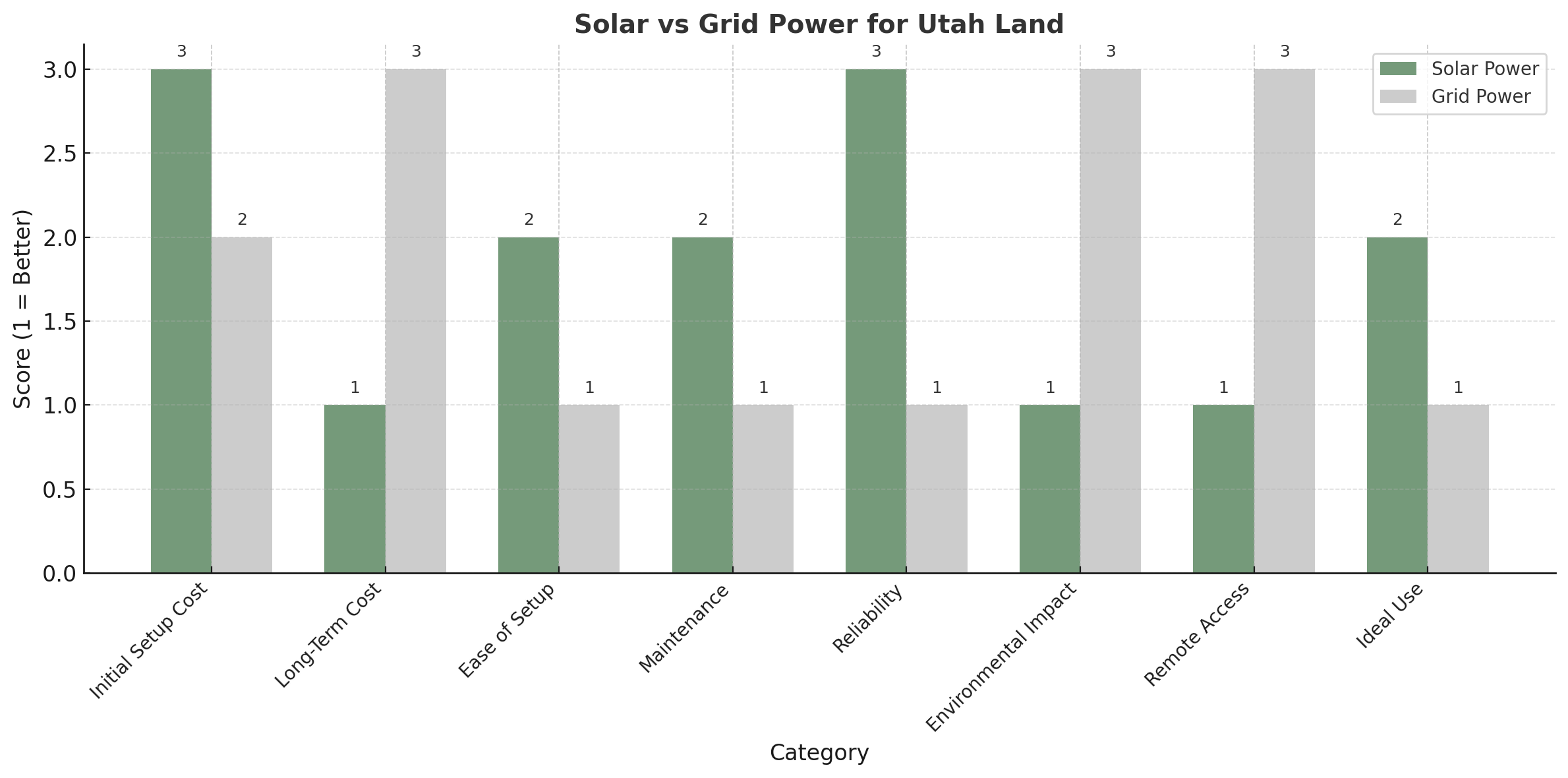Powering Your Off-Grid Property in Utah: Solar vs Grid Access
When you buy land in rural Utah, one of the first questions you'll face is how to power it. Whether you're building a cabin, parking an RV, or planning a long-term homestead, your energy setup needs to be practical, reliable, and cost-effective.
At Mountains West Ranches, we help buyers understand their options — and choose the setup that fits their land and lifestyle. If you're considering off-grid land in Utah, here’s what you need to know about solar power vs grid access.
What Off-Grid Really Means in Utah
Off-grid doesn’t mean isolated or disconnected from the world. It simply means your land isn’t tied to city utilities — especially electricity. Many buyers choose off-grid properties because they want more control over how they live and how they spend.
Why Buyers Choose Off-Grid Land
Lower land prices
Fewer restrictions on use
More privacy and independence
More flexibility in design and building
View Utah off-grid properties currently for sale.
Option 1: Setting Up Solar for Your Land
For many buyers, solar power is the first choice. It’s scalable, low-maintenance, and becoming more affordable. If you're living part-time or using the land for recreation, a basic setup may be enough to power lights, water pumps, and small appliances. Full-time use may require a more complete system with panels, batteries, and inverters.
Pros of Going Solar
Works in remote areas where grid isn’t available
Long-term cost savings
Low environmental impact
Quiet and efficient
Things to Plan For
Upfront system cost
Maintenance and battery replacement every few years
Need for backup (generator or propane) during storms or winter months
Option 2: Tapping Into the Grid (When Available)
Some rural properties are close enough to connect to power lines. This can make sense if you plan to live on the land full time or run power-heavy systems. Utility companies may charge a setup fee to bring electricity from the nearest access point to your site — and those fees can vary by distance and terrain.
Pros of Grid Power
Consistent energy supply
No need to manage batteries
Easier to support full homes and large appliances
What to Watch For
Setup costs for extending lines
Ongoing monthly utility bills
Delays with local power companies
So… Which Option Is Right for You?
If you're planning occasional visits or want a simple retreat, solar power is often the more flexible and affordable choice. If you're building a larger, permanent home, and the grid is nearby, connecting to utilities may offer more convenience.
Either way, it's important to consider:
Your usage needs
Budget for upfront setup
Long-term goals for the land
Whether you plan to go full-time or stay part-time
Off-Grid Frequently Asked Questions (FAQs)
-
Each listing on our site includes utility details. You can also ask a land specialist to confirm distance to power lines or poles.
-
Yes. Many buyers do both — connect to the grid but use solar to reduce costs.
-
Yes, with the right system. You’ll need enough panels, batteries, and possibly a backup generator.
-
A basic solar setup or portable generator will usually be enough for weekend use.
-
We offer many off-grid properties in sunny areas that are ideal for solar.
Ready to Power Your Utah Property?
Choosing between solar or grid power depends on your goals — but both are possible with the right land. Whether you're planning to build a home, set up a cabin, or enjoy weekends off the grid, we’re here to help you understand your options.
👉 Browse off-grid land in Utah
👉 Talk to a land specialist to get answers based on the property you’re considering



